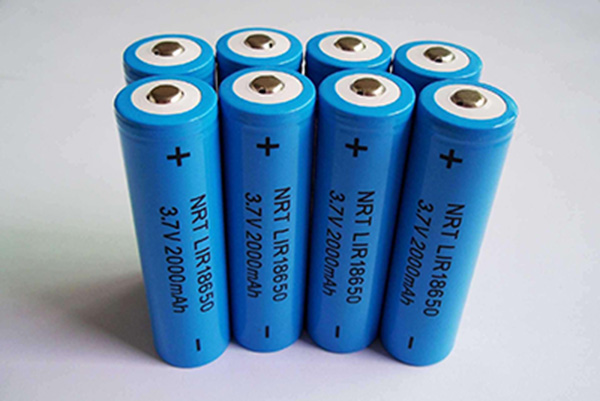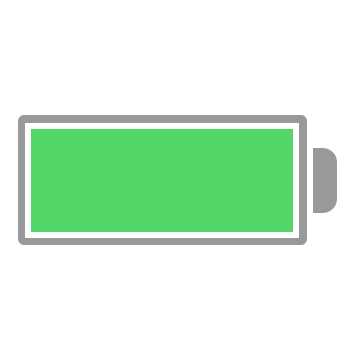Supercapacitor VS Li-Ion Battery
Oct 23, 2019 Pageview:1806
The Li-ion battery is well-known because of its work efficiency and durability but many other types of emery storages are available in the market. These things do not only provide efficient work but also give the best results, the supercapacitor is one of them. Let’s discuss more about it.
Can we use a supercapacitor as a battery?
Supercapacitors are high-limit capacitors with lower voltage limits and higher capacitance than different kinds of capacitors, and practically, they lay someplace in the middle of electrolytic capacitors and battery-powered batteries.
What this implies practically speaking is that they:
1.Charge a lot quicker than batteries
2.Can store significantly more vitality than electrolytic capacitors
3.Have a life expectancy (estimated in control/release cycles) somewhere close to the two (more than battery-powered batteries and not exactly electrolytic capacitors)
For a life expectancy examination, think about that while electrolytic capacitors have a boundless number of charge cycles, lithium-particle batteries normal somewhere in the range of 500 and 10,000 cycles. Supercapacitors, be that as it may, have a life expectancy running from 100,000 to a million cycles. To understand more about it, let's check the advantage and disadvantages of a supercapacitor.
Advantages and disadvantage of supercapacitors
The advantages of supercapacitors include:
I.Balancing vitality stockpiling with charge and release times:
While they can't store as a lot of vitality as an equivalently estimated lithium-particle battery (they store generally ? the vitality by weight), supercapacitors can make up for that with the speed of charge. Now and again, they're almost 1,000 xs quicker than the charge time for a comparable limit battery.
II.Some electric toys that utilization supercapacitors can charge in a flash:
Many companies are hoping to actualize a similar thought in genuine electric vehicles. Envision electric vehicles controlled by supercapacitors (instead of battery-powered batteries) that could charge to full in less time than it takes to fill a non-renewable energy source engine with gas, as opposed to the long stretches of charge time regularly required by battery-worked autos.
III.Wide-going Operating Temperatures:
Supercapacitors have a lot more extensive compelling working temperature (from generally - 40F to +150F).
Disadvantages of supercapacitors:
IV.Self-release rate:
Supercapacitors aren't appropriate for long haul vitality stockpiling. The release pace of supercapacitors is essentially higher than lithium-particle batteries; they can lose as much as 10-20 percent of their charge every day because of self-release.
V.Gradual voltage misfortune:
While batteries give a close steady voltage yield until spent, the voltage yield of capacitors decays directly with their charge.
Will supercapacitors ever replace li-ion batteries?
Since in many applications, their ability isn't adequate to play out the activity for quite a while. Anyway, individuals frequently overlook one significant quality is toughness. Supercapacitors can be charged and released a large number of times instead of batteries who can a couple of thousand, best case scenario. It may be taken place of expensive batteries because of the following reasons:
Less expensive:
Since they are less expensive to make than batteries (relies upon size) and last 1,000 more, they could be entirely gainful given you can play out the undertaking you need to do.
Long life:
Would you be able to envision energizing your mobile phone in 1 moment? It may not last 24hours however what about 8 hours, you can revive somewhere else in one moment and would not debase in a couple of years, much superior to a dumb Li-particle battery yet individuals being lazy, I don't know whether they might want to need to charge during the day in any event, for a moment?
Fast working:
They will be utilized increasingly more in regenerative braking where they can ingest vitality significantly quicker than batteries and they transmit the surplus to the batteries, another half and half kind of capacity.
With promising aftereffects of graphene, it is very conceivable that Super-super capacitors may supplant batteries. When they are in a similar request to an extent, the time has come to consider it. Keep in mind; capacitors are useful for many cycles not a couple of thousands like batteries and they charge 1,000fold quicker gave your charge station can supply the amperage.
The comparison of supercapacitor and li-ion battery:
Now, the batteries and supercapacitors are somewhat corresponding, with the quality of one being the shortcoming of the other. We should survey the key parameters of supercapacitors and Li-Ion batteries:
1.Charge time:
Supercapacitor exceeds expectations in this, with a charging time from 1 to 10 seconds, contrasted with 10 to an hour to arrive at a full charge on a battery.
2.Life:
Typical batteries have 500-1000 charge-release cycles while supercapacitors can reach up to one million cycles. In-vehicle administration, batteries have a future of 5 to 10 years while supercapacitors can keep going for 10 to 15 years.
3.Explicit vitality:
This is the complete put-away vitality per unit mass, and is the essential shortcoming of the supercapacitor, with a normal of 10 Wh/kg, contrasted with 100-200 for batteries. For reference, we have 3700 Wh/kg for petroleum fuel (thinking about 30% effectiveness of an inside burning motor). Concerning per unit volume, supercapacitors are likewise a long ways behind at 15 Wh/L, and 1200 Wh/L for batteries. That implies that a supercapacitor controlled iPhone 5 will be 2 inches thick.
4.Explicit power:
Since supercapacitors can charge rapidly, they can likewise release quickly, in this manner they can convey an intensity of up to 10k W/kg. On the other hand, Li-Ion batteries are in the range of maximum 3000 W/kg.
5.Cost:
Being a moderate innovation, supercapacitors are as yet costly, with an expense of around $20 per watt, while batteries are a lot less expensive in the range $0.5-$1 per watt.
Bottom line:
Lithium-ion batteries and supercapacitors are two different sorts of energy storage but they both are using now. The main difference is in their availability, price, and life. The supercapacitor is not applicable officially in the market and the places where you can found it quite expensive than its original price. It can be the next generation's tool for charging and energy storage.
- Prev Article: What is lithium battery energy content?
- Next Article: Vanadium Battery VS Lithium Battery
Leave Message
Hottest Categories
-
Hottest Industry News
-
Latest Industry News











